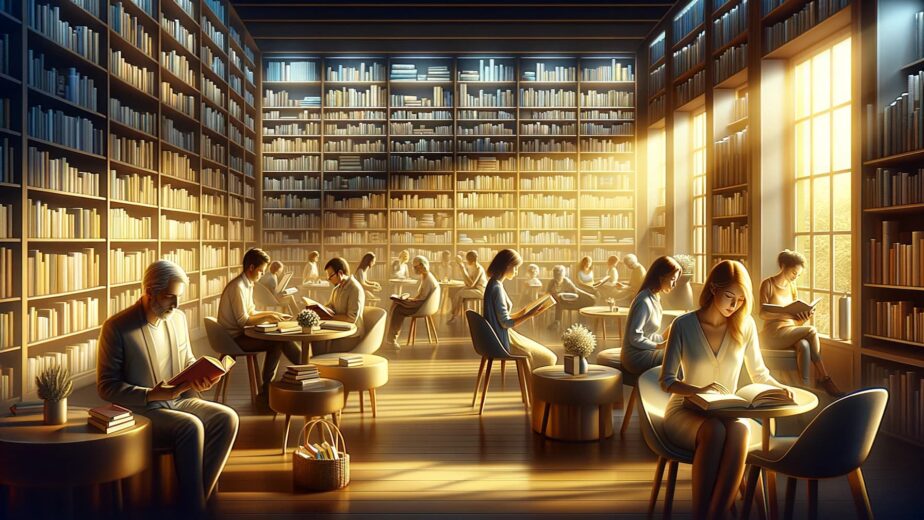Literature is a grandiose phenomenon, created by the genius of man and the fruit of his mind. It is a means of knowledge of the world, helping us understand “what is good and what is bad,” and pointing to the origins of universal conflict. Literature helps us see the inner beauty of man, learn to understand and appreciate it, and serves as a powerful source of nurturing the spirit and the personality. Through the disclosure of artistic images, literature provides us with concepts of good and evil, truth and falsehood, with a powerful impact on the human mind.
Literature also acts as a bridge between cultures, offering us insights into societies and lives that may be vastly different from our own. This unique ability to transcend geographical and temporal boundaries makes literature a timeless and universal art form. By engaging with diverse texts, readers develop empathy and a deeper understanding of the world. Through its narratives, whether they be rooted in reality or spring from fantastical realms, literature challenges our perceptions and encourages us to think critically about ourselves and our society.
The Role of Literature in Personal Development
Literature serves as a powerful catalyst for personal development. By immersing oneself in diverse literary works, individuals are exposed to a myriad of perspectives and experiences. This exposure fosters empathy, broadens one’s worldview, and cultivates critical thinking skills. Through characters and narratives, literature allows readers to explore complex emotions and moral dilemmas, facilitating a deeper understanding of themselves and others.
Moreover, literature often addresses universal themes such as love, loss, ambition, and resilience. By engaging with these themes, readers can find resonance with their own life experiences, leading to personal insights and growth. For instance, reading about a character overcoming adversity can inspire individuals to face their own challenges with renewed determination.
Literature as a Means of Knowledge
Beyond personal development, literature is a profound source of knowledge. It provides historical context, cultural insights, and philosophical reflections that enrich our understanding of the world. Historical novels, for example, offer glimpses into past societies, shedding light on the events and ideologies that have shaped our present. Similarly, literary works from different cultures can bridge cultural divides, promoting mutual understanding and respect.
Additionally, literature often tackles complex social issues such as inequality, justice, and human rights. By presenting these issues through compelling narratives, literature can raise awareness and provoke critical discussions. This educational aspect of literature is crucial in fostering an informed and conscientious society.
The Healing Power of Literature
Literature also possesses a remarkable ability to heal and comfort. During times of distress or uncertainty, literary works can offer solace and a sense of connection. Poetry, for instance, can articulate emotions that are difficult to express, providing a therapeutic outlet for readers. Novels and memoirs can also offer validation and support, letting readers know that they are not alone in their struggles.
Moreover, the act of reading itself can be a form of escapism, allowing individuals to momentarily detach from their own problems and immerse themselves in another world. This mental respite can be incredibly beneficial for emotional well-being. In this way, literature serves not only as a mirror reflecting human experience but also as a balm soothing the mind and spirit.
Key Points
- Literature nurtures the spirit and shapes personality.
- It provides knowledge about the world and different cultures.
- Literature offers a unique perspective on good and evil, truth and falsehood.
- It has a powerful impact on the human mind through artistic images.
- Literature can heal, provide solace, and inspire individuals.
Comparison of Literature’s Impact
| Aspect | Impact |
| Personal Development | Shapes personality, instills values |
| Knowledge | Broadens horizons, enhances understanding |
| Healing | Provides solace, emotional support |
Frequently Asked Questions
1. How does literature nurture the spirit?
Literature nurtures the spirit by providing insights into the human condition, instilling values, and offering perspectives that help individuals grow emotionally and intellectually.
2. Can literature really heal?
Yes, literature can provide emotional support, offer solace, and inspire individuals to find strength and hope during difficult times.
3. How does literature broaden our knowledge?
Literature broadens our knowledge by offering insights into different cultures, historical contexts, and social issues, helping us understand the world and the experiences of others better.
4. What is the impact of literature on personal development?
Literature impacts personal development by shaping character, nurturing the spirit, and instilling values of good and evil, truth and falsehood.
For more information on academic writing, visit this article.
